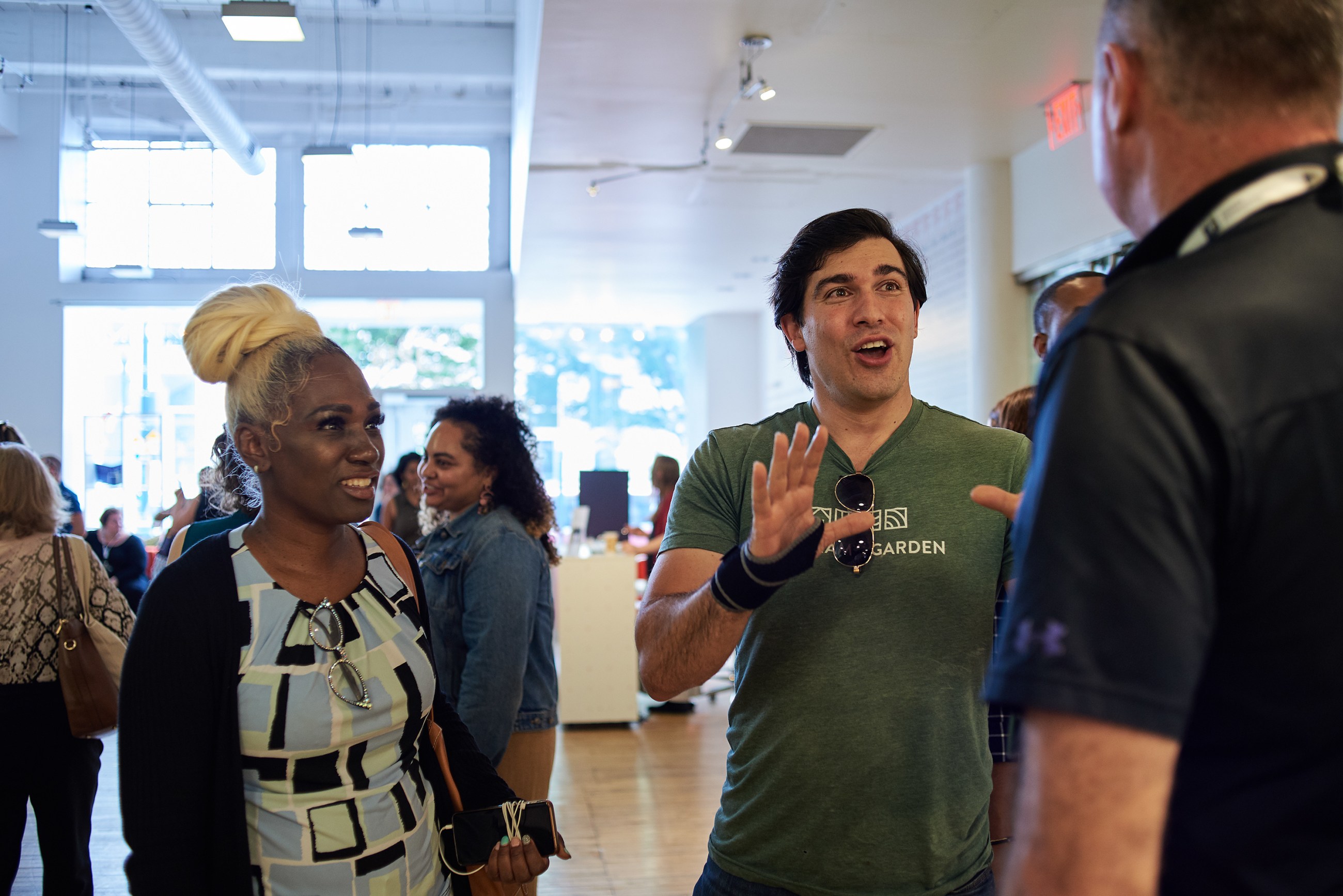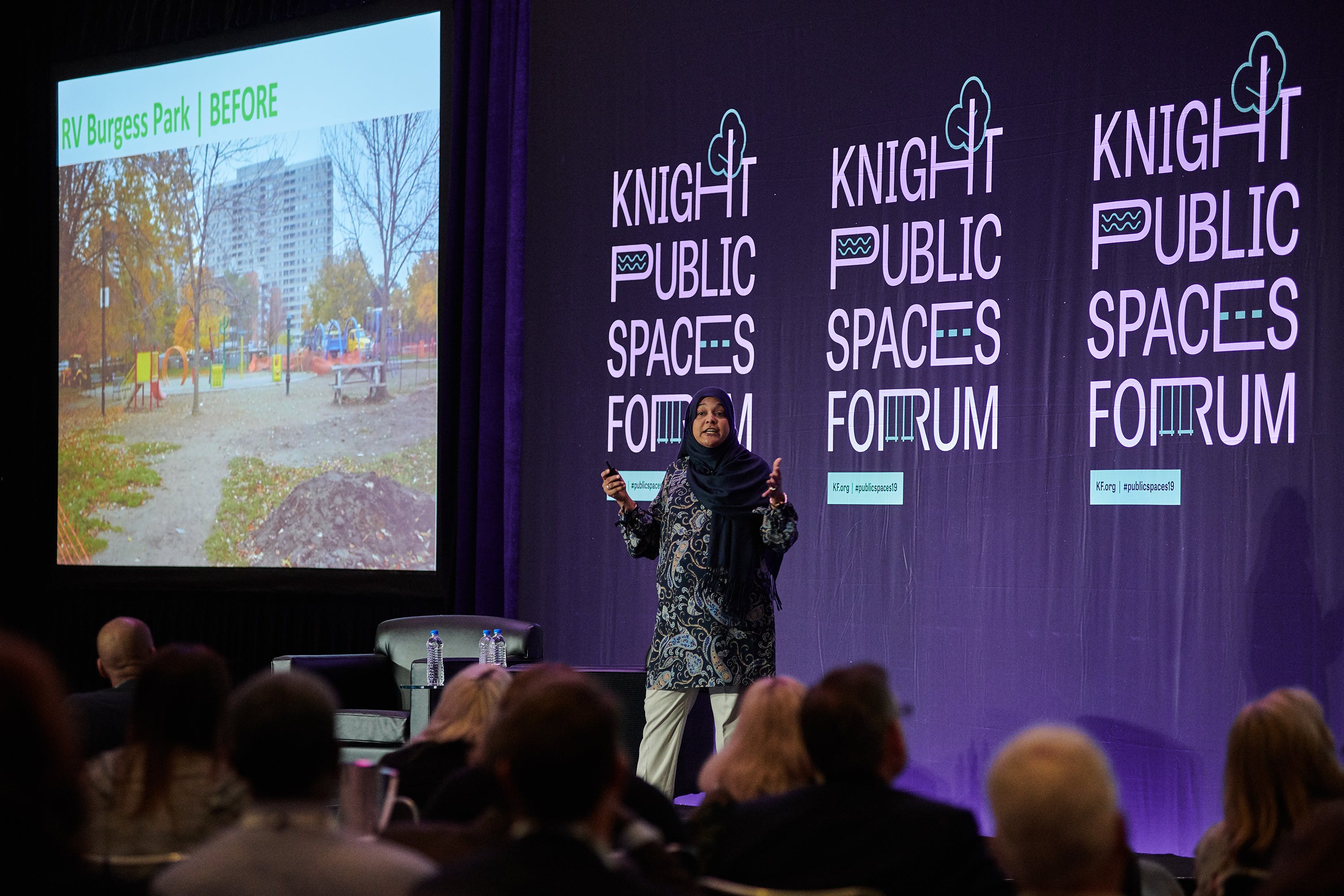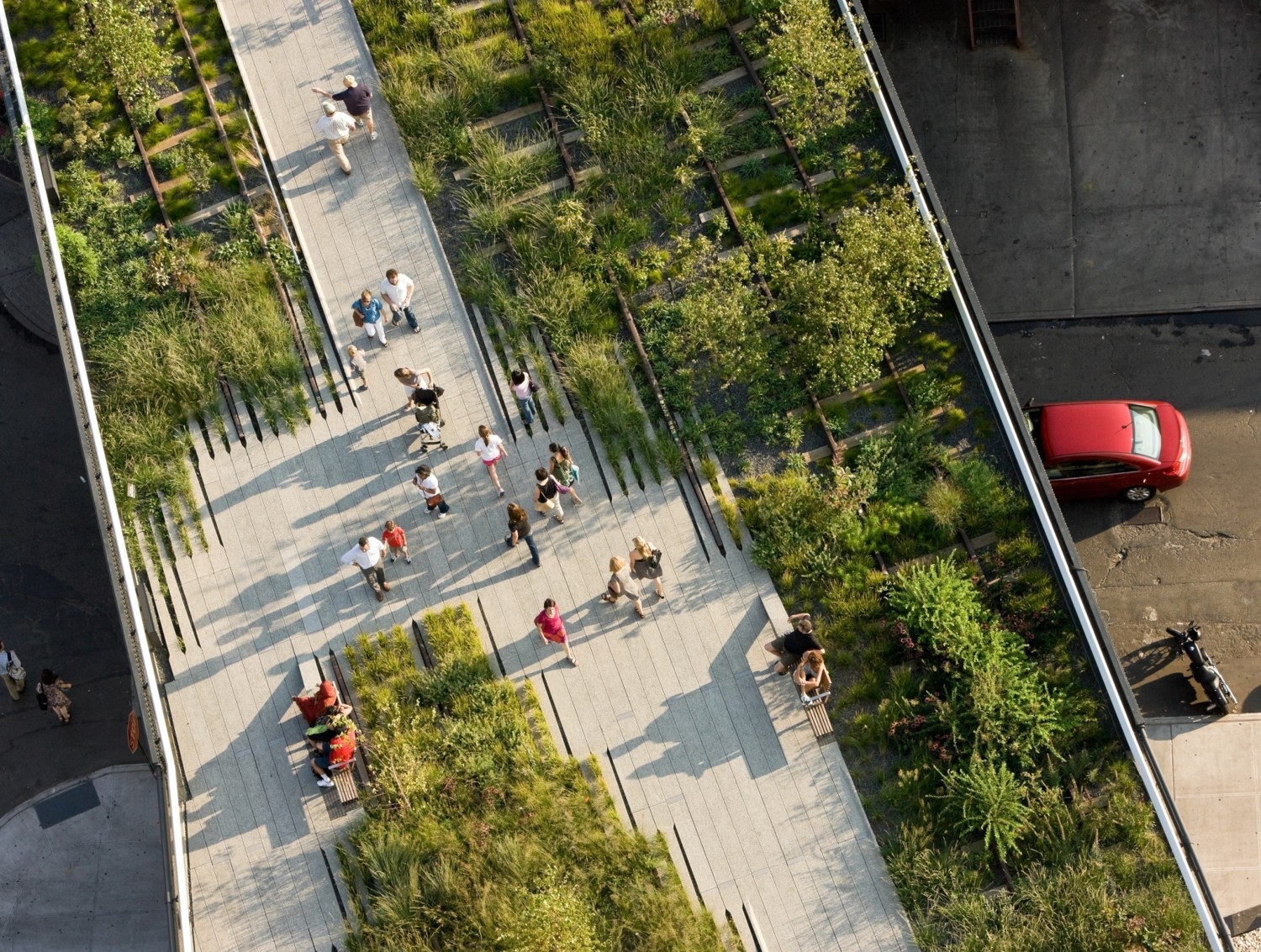
Five things we learned from Knight’s inaugural Public Spaces Forum
Public spaces are essential in any community because they provide the space for residents to gather, play, learn, dream and connect. Knight invests in public spaces and the public life of cities to foster engagement and attachment to place. We believe great public spaces don’t just happen—they require creative leadership and engaged neighbors to plan, design, program and operate. This was a key topic of discussion at the inaugural Knight Public Spaces Forum held in Philadelphia this summer.
Forum attendees—275 in all—came from across North America to share their experiences and learn from peers. These artists, planners and designers, librarians, neighborhood champions, local government leaders, recreation and parks representatives, and technologists represent the expanding and inclusive field of practice that is driving public spaces today. Through community workshops, sessions and informal discussions, participants spent two days exploring how they can engage others to advance the role of public spaces in fostering more informed and engaged communities.

The forum also provided a platform for Knight to expand its commitment to public space leadership. During the program kick-off, seven proven, innovative public space leaders were named Knight Public Space Fellows. Each fellow received $150,000 in flexible funding that will provide them with the space and freedom to unleash their creativity. They will also have access to opportunities to work with and learn from each other and to elevate their work to a wider audience. We believe by giving these individuals resources, flexibility and a network—powerful innovation can occur.
Here are our top five insights from the forum:
- Develop community engagement as an ongoing strategy for your public space work. Several speakers discussed the need to rethink engagement strategies. Engagement with residents and other stakeholders should be an ongoing strategy, not simply a one-time goal to meet. This is best achieved when the focus is on building trust and sustaining authentic relationships with your community.
- Make equity the foundation. Ensuring that public spaces live up to their full potential as places for all means that principles of equity must be embedded from the start. Setting equity as the foundation means reconsidering every aspect of planning, designing, programming and managing public spaces to achieve fairness in process and outcomes.
- Take time to look up and out. It’s easy to get caught up in the day-to-day aspects of managing public spaces, but it’s also important to look ahead at the trends and forces that will impact public spaces in the future. In Philadelphia, we were able to look up and out – in person— at various world class projects including Bartram’s Garden, Centennial Commons and Cherry Street Pier. Moreover, attendees identified several areas that intersect with public spaces—climate change, slow growth cities and smart cities—for further exploration.
- Prioritize opportunities for peer exchange. While attendees and speakers used the forum to share research, toolkits and other resources driving their work, they also noted how important it is for this field to come together for in-person learning. As this field continues to grow and develop, sharing resources — policy frameworks, messaging guides, outreach tools — for what works and identifying knowledge and resource gaps is that much more essential.
- Leverage both data and storytelling for reporting. Engaging storytelling is a necessary, but sometimes overlooked, element in building community support public spaces. One way to tell more meaningful stories is to bolster the narrative with data points that resonate with community members as well as local officials. It’s not enough to measure and report on outputs. Instead, the focus should be on measuring what matters to the community in an effort to demonstrate how a public space can further those goals.
Interested in learning more? View presentations and resources from the Knight Public Spaces Forum and watch Instagram Story updates live from the event. Learn more about Knight’s public spaces work here.
***
Lilly Weinberg is director of community foundations at Knight Foundation.
Lynn Ross is the founder and principal of Spirit for Change Consulting, LLC; she is Knight Foundation’s lead consultant for its work supporting Reimagining the Civic Commons and the Knight Public Spaces Forum.
YOU MAY ALSO BE INTERESTED IN…
-
Episode
-
-
Community Impact / Press Release
-
Topic
Recent Content
-
Community Impactarticle ·
-
Community Impactarticle ·
-
Community Impactarticle ·






